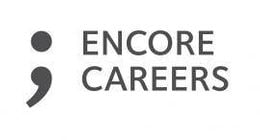Get the Perks You Want in a New Career
Balance out a lower salary with better benefits
Even in these tough economic times, many boomers are exploring ways to earn a living while serving their communities.
Many are willing to give up some financial benefits for the psychic benefits of meaningful work.
These intrepid explorers need not be martyrs for the common good. The financial hit they take when moving into the nonprofit lane can be softened considerably by some smart negotiating. Lane changers who now enjoy nonprofit careers shared some surprising pointers about negotiating their new compensation packages.
Know your compensation 'comps.'
Nonprofit organizations have to be creative to attract the talent they need to provide leadership and execute their missions. Start your pay discussion with the highest base you earned in your earlier career, keeping in mind that bonuses and stock options are not available in the nonprofit world.
If you’ve taken a hiatus from the workforce, your last salary is probably not an advantageous starting point. One lane changer who moved from industry to raising kids to a chief financial officer position in a museum advised, “Don’t rely on the ‘comps’ suggested by a nonprofit’s H.R. department. Instead, do your own homework about comparable positions, and negotiate from there.”
Sort out your priorities. Don’t let old habits from your first half of life dictate the terms of your encore career. I know how tough this can be from my own experience navigating the transition from a big consulting firm to writing and working in the nonprofit arena. My sense of self-worth — indeed my whole identity — had been tied to my title, compensation and status. I had to rethink what was important to me at this stage of life. As you prepare your own transition, give proper weight to such issues as flexible hours, work-from-home privileges, vacation time and the like.
Don’t negotiate until you’re ready to commit. Then go for it. Get the job you want, and don’t talk money until the organization commits to you as an individual. You might say, “Let’s start with the job and I am sure we can work out the money.” When you feel the job is yours, negotiate hard for your priorities and get them up front. As Deborah Cannon learned, “Once you join the organization, you are likely to be co-opted by its mission and will find it harder, and even distasteful, to negotiate for your own benefit.”
Treat the “standard” benefits package as negotiable. Surprisingly, most nonprofits offer pretty generous benefits. Break the package down and determine whether there are pieces that are not important to you. Perhaps you already have life insurance or you have good medical insurance through your spouse. Offer to give up the nonprofit’s offerings in exchange for other benefits which rank higher on your priority list. For example, perhaps you can trade insurance for a longer vacation or more flexible hours.
Ask for an enhanced title. Be honest with yourself. If you crave affirmation from others, your title has a value to you that you shouldn’t overlook. You will learn quickly that you won’t score points with your new colleagues by referring to “how we did things in industry.” By all means, give your ego a break by negotiating the best title you can think of for the work you’ll be doing. Lynn Rosenfeld, who left a career in banking for serve as vice president for special projects in the president’s office of California Institute of the Arts, points out that the nonprofit organization can afford it because a title doesn’t cost anything.
Negotiate for additional investments in your knowledge-base. All the lane changers referenced the steep learning curve they encountered, especially during the first six months on the job. It is to everyone’s advantage for you to climb that curve as quickly as possible. Make sure your expenses will be covered for you to make the rounds of industry conferences and peer organizations and broaden your network of knowledgeable sources to advise you during this journey. This “perk” will be less important (and less interesting) to you later on, so make sure it’s front-loaded into your calendar and cash flow budget.
There are many trade-offs to weigh when considering this career switch. The nonprofit world is not a place to go to retire while still working. Encore careerists say they work just as hard — or harder — than they did in the for-profit world. Happily, they also confirm that the biggest reward is the intrinsic value of the work itself.
By all means, heed the call to pay it forward. But you will make your transition far less daunting if you are clear about your priorities and stand up for them in your negotiations.
Jane Jelenko was the first woman partner in the consulting arm of KPMG, the international professional services firm, where she served for twenty-five years in various leadership roles including on the firm's board of directors.
This article was originally published by Encore.org on Nov 13, 2009.


